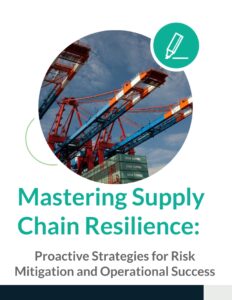Elevate Your Business: Harnessing Total Quality Management for Lasting Success
Today businesses must consistently strive for excellence to not only survive but to also thrive and expand. Achieving this lofty goal is possible through various strategies, one of the most effective being Total Quality Management (TQM). TQM stands out as a comprehensive management approach that prioritizes the core elements of customer satisfaction, employee engagement, and an ongoing commitment to improvement. It’s a holistic strategy that integrates all aspects of a business, from production to customer service, under the umbrella of quality.
This management philosophy underscores the critical importance of understanding and meeting customer needs as articulated in this article, which stresses that the voice of the customer cannot be ignored if a business aims to succeed. Similarly, the engagement and satisfaction of employees play a pivotal role in the success of TQM, as highlighted by this resource, showing how boosting employee engagement contributes to overall business success.
In this detailed blog post, we dive into the intricacies of what TQM is, the mechanisms behind its operation, and the myriad ways it benefits your business operations. By adopting TQM, businesses can foster a culture of quality that permeates every level of the organization, leading to enhanced performance, improved customer satisfaction, and ultimately, sustained business growth.
What is Total Quality Management (TQM)?
Total Quality Management, or TQM, is a comprehensive management philosophy dedicated to achieving the highest levels of quality and efficiency in every facet of a business’s operations. This approach is not merely a quick fix or a short-term solution; it represents a deep, long-term commitment to the ongoing process of continuous improvement. TQM is characterized by its holistic scope, encompassing every aspect of the organization—from its people and their commitment to quality, to the processes that underpin the business’s operations, and extending to the products or services offered to customers.
In practice, TQM involves a paradigm shift in how a business operates, prioritizing quality at every level and in every activity. It encourages a culture where every member of the organization is engaged in identifying and solving problems, thus contributing to the overall improvement of the business. This inclusive approach ensures that improvement efforts are comprehensive and sustained, leading to significant enhancements in customer satisfaction and business performance. Through TQM, businesses strive not only to meet but to exceed the expectations of their customers, setting themselves apart in a competitive marketplace.
How does Total Quality Management work?
Total Quality Management (TQM) functions by fostering a culture focused on continuous improvement at every organizational level. It begins with the leadership team, who must wholeheartedly embrace the TQM philosophy and actively communicate its principles throughout the organization. Leaders play a crucial role in setting the tone for a quality-driven culture and ensuring that all team members are aligned with these values.
The next critical step in TQM is to thoroughly understand the customer’s needs and expectations. This involves identifying not only what customers explicitly want but also anticipating their future needs. Once these needs are identified, the organization must align its processes to fulfill them efficiently and effectively. This alignment includes reevaluating and redesigning processes to ensure they are customer-centric.
To facilitate this continuous improvement process, TQM employs a variety of tools and techniques. Process mapping helps organizations visualize their workflows, making it easier to identify bottlenecks and areas for improvement. Root cause analysis is used to dig deeper into issues and understand their underlying causes, preventing them from recurring. Statistical process control allows for the monitoring of processes over time, identifying trends, and making data-informed adjustments to maintain quality standards.
Expanding on the benefits of Total Quality Management for a business’s operations, TQM not only elevates the organization’s overall quality and productivity but also enhances customer satisfaction. By systematically reducing defects and errors in the production process, TQM enables organizations to consistently produce high-quality products. This commitment to quality can substantially reduce the cost associated with poor quality, such as scrap, rework, and warranty claims. Furthermore, by building a reputation for reliability and excellence, organizations can foster stronger customer relationships, increased loyalty, and a competitive advantage in their market.
In addition to these operational benefits, TQM also contributes to a positive organizational culture. Employees in a TQM environment are typically more engaged, as they are encouraged to contribute ideas and be part of problem-solving processes. This involvement not only boosts morale but also leads to innovative solutions that drive further improvements. In the long run, Total Quality Management helps in building a resilient organization that can adapt and thrive in an ever-changing business landscape.
Moreover, Total Quality Management (TQM) can significantly enhance organizations’ supplier relationships by actively involving suppliers in the continuous improvement process. This collaborative approach not only fosters a stronger partnership but also elevates the quality of raw materials and components supplied. As a direct consequence, organizations can witness a marked improvement in the quality of their finished products. Furthermore, by working hand-in-hand with suppliers, organizations can streamline their production processes, effectively reduce lead times, and maintain lower inventory levels, which collectively contribute to substantial cost savings.
In addition to enhancing supplier relationships, TQM plays a pivotal role in refining the decision-making process within organizations. By leveraging precise and up-to-date data garnered through tools like statistical process control and comprehensive data analysis, TQM empowers organizations to detect trends and patterns in their operational processes. This capability to make informed, data-driven decisions enables organizations to not only identify but also seize opportunities for improvement. By prioritizing these initiatives based on their anticipated impact on customer satisfaction and overall business performance, organizations can strategically allocate their resources to areas that promise the most significant returns. Through this meticulous approach, TQM essentially guides organizations toward achieving operational excellence and exceeding customer expectations.
Overall, implementing TQM can help organizations achieve operational excellence and sustainable growth. By creating a culture of continuous improvement and involving all stakeholders in the process, organizations can improve their products and services, increase customer loyalty, reduce costs, and ultimately achieve their long-term goals.
What are the benefits of Total Quality Management (TQM) for your business’s operations?
Implementing Total Quality Management (TQM) can significantly enhance your business operations, offering a multitude of benefits. Among these, you’ll notice a marked increase in operational efficiency, allowing your business to deliver products and services more swiftly and effectively. Additionally, TQM plays a crucial role in reducing waste – not just physical waste, but also inefficiencies that bog down your processes.
Another critical advantage of TQM is the substantial improvement in customer satisfaction it brings. By prioritizing and addressing the needs and expectations of your customers, your organization can elevate the quality of your products and services. This, in turn, fosters stronger customer loyalty and retention, as customers are more likely to stick with businesses that value their input and work to meet their needs.
Moreover, TQM boosts employee engagement and morale by involving staff at all levels in the continuous improvement process. This involvement not only empowers employees but also encourages a sense of ownership and pride in their work, leading to higher-quality output and a more committed workforce.
Lastly, TQM equips organizations with the agility to respond to changing market conditions. In today’s fast-paced business environment, the ability to quickly adapt to new trends, customer preferences, and technological advancements is invaluable. By embracing TQM principles, organizations can become more flexible and dynamic, enabling them to stay competitive and successful in the long run.
Overall, integrating Total Quality Management into your business operations can lead to enhanced performance, better customer relations, a more engaged workforce, and greater adaptability, all of which are essential for long-term success.
How can you implement Total Quality Management (TQM) in your organization?
To successfully implement TQM in your organization, it’s imperative to have a deep understanding of the philosophy behind TQM and its core principles. This approach is not merely a set of guidelines but a fundamental change in the organizational culture that emphasizes quality in every aspect of operations and customer satisfaction.
First and foremost, involving all stakeholders is crucial. This means not only your employees but also suppliers, customers, and any other partners. Their involvement ensures that every part of your supply chain and service delivery is aligned with the principles of TQM.
Moreover, it is essential to identify and meticulously measure key performance indicators (KPIs) that reflect the customers’ needs and expectations. These indicators will guide your improvement efforts and help you gauge your progress toward achieving total quality management.
Incorporating continuous improvement into the fabric of your organization’s culture is another critical step. This requires creating an environment where all employees feel empowered and are encouraged to suggest and implement improvements. Training becomes a key component here, as every team member must understand the TQM philosophy and how they can contribute to its implementation.
Total Quality Management is a comprehensive approach that can significantly enhance your business operations. By placing the customer’s needs at the forefront, TQM strives to increase efficiency, minimize waste, boost customer satisfaction, and foster greater employee engagement. For TQM to be successful, a genuine commitment to its philosophy is required, alongside the active involvement of all stakeholders.
Embedding continuous improvement into your organization’s culture ensures that striving for excellence becomes a daily habit. Training and empowering employees to take ownership of the process are fundamental to this transformation. Implementing TQM is not just about meeting quality standards but about setting new benchmarks for excellence in every facet of your operations. This commitment to quality can propel your organization towards achieving its long-term objectives and sustaining competitive advantage in the marketplace. By embracing TQM, your organization sets itself on a path to achieve excellence in all operations, thereby ensuring long-term success and sustainability.
If you would like to discuss how TQM can help your organization’s growth, book a consultation with one of our experts today.







